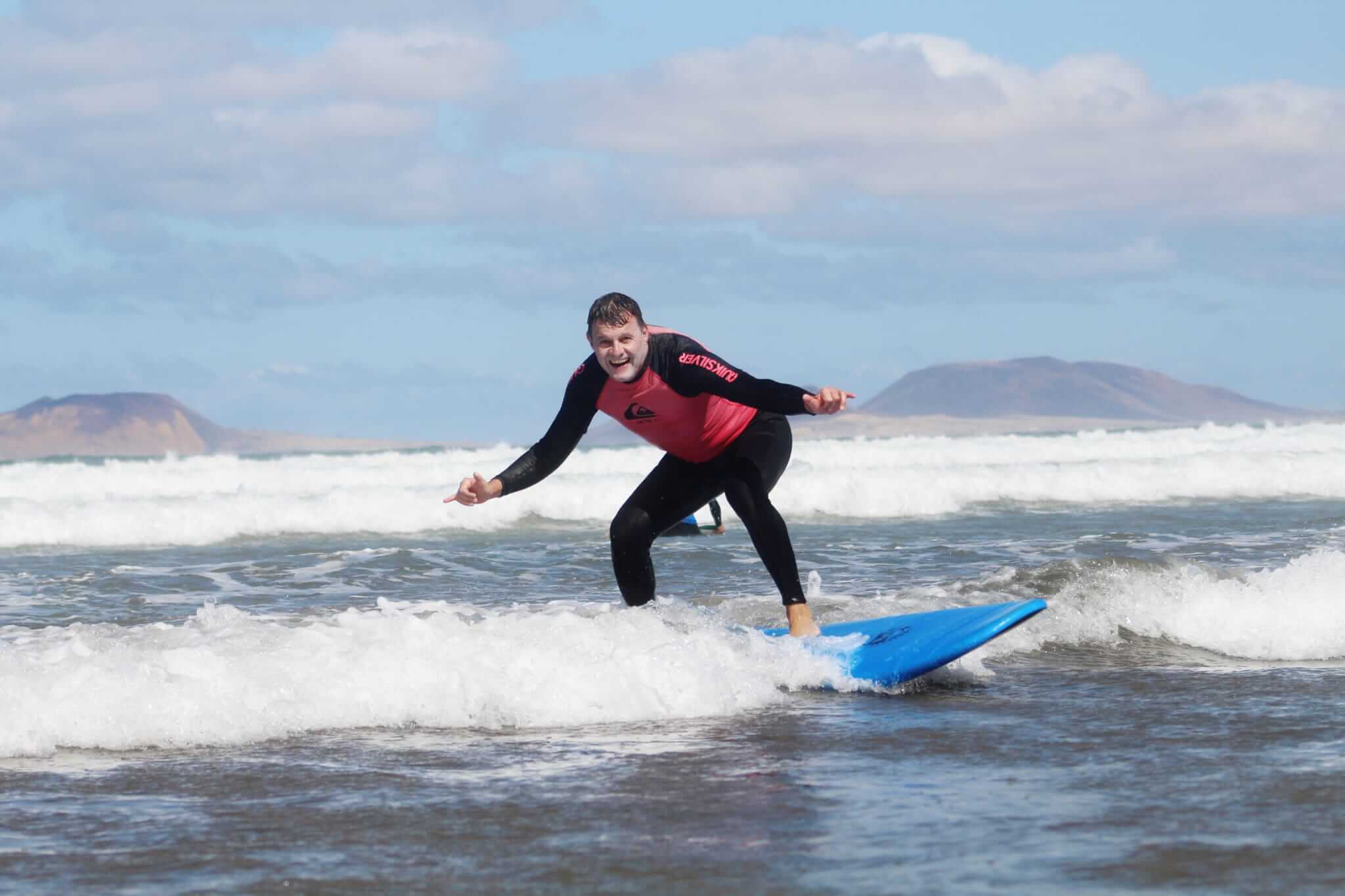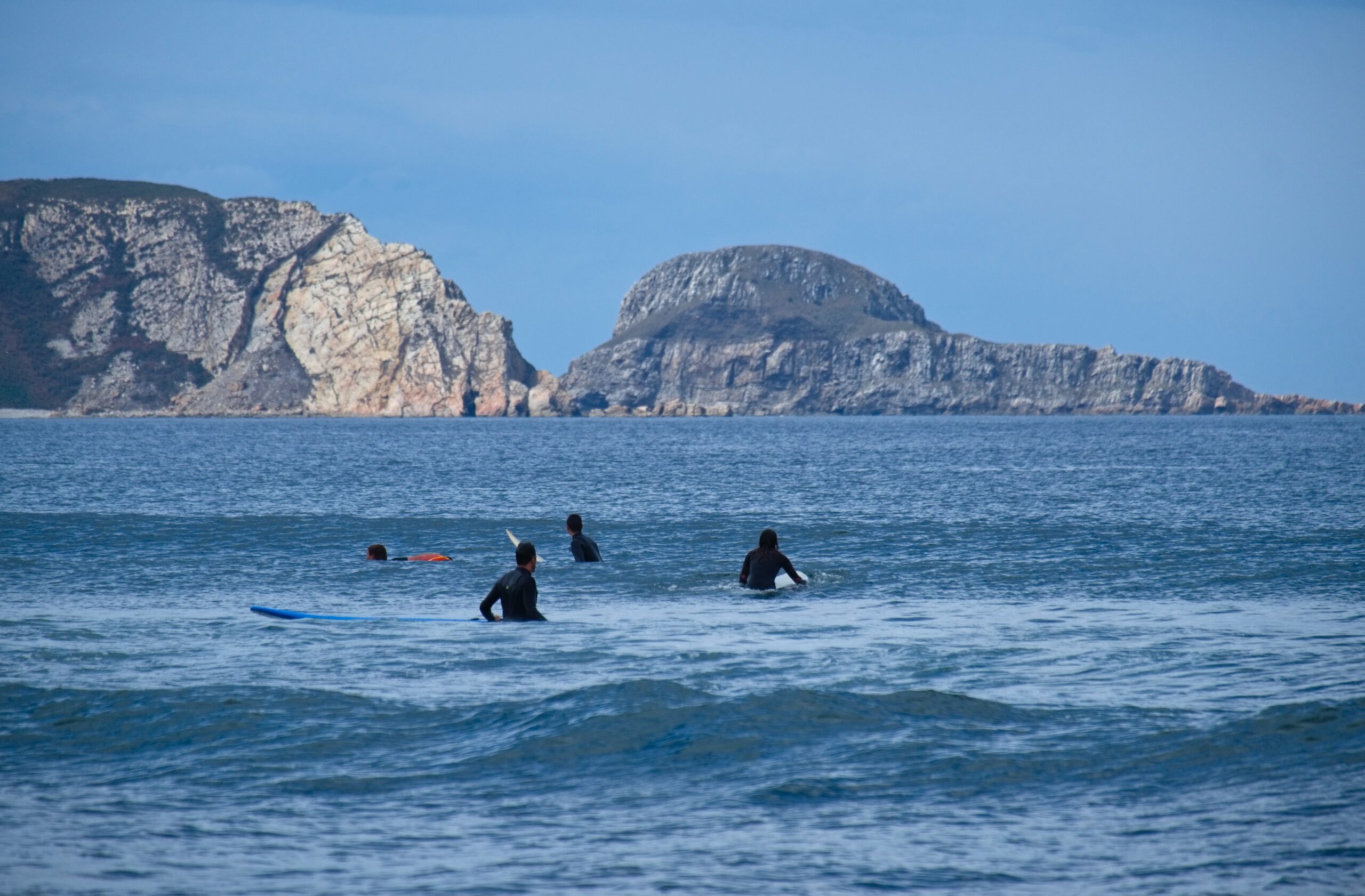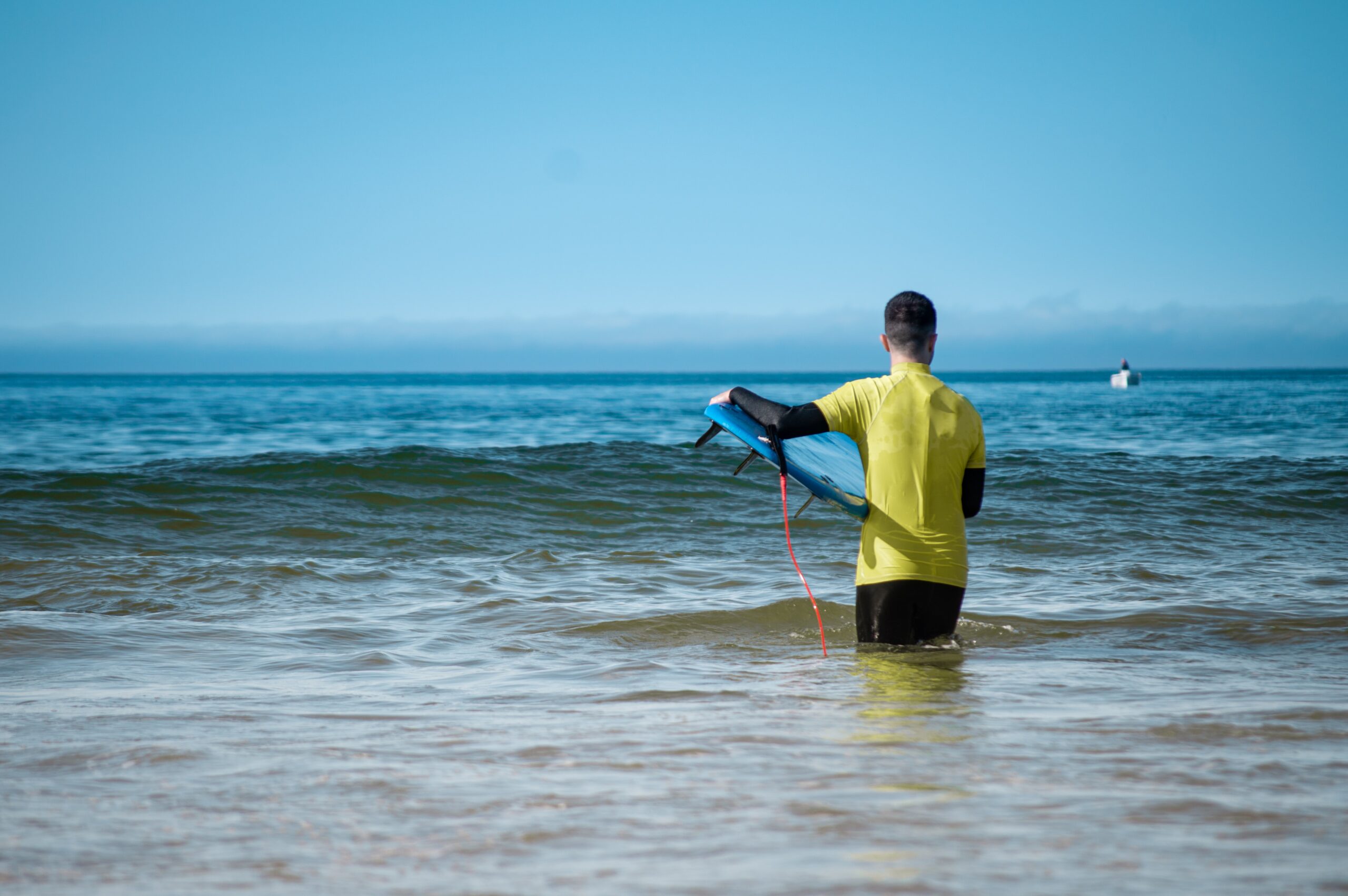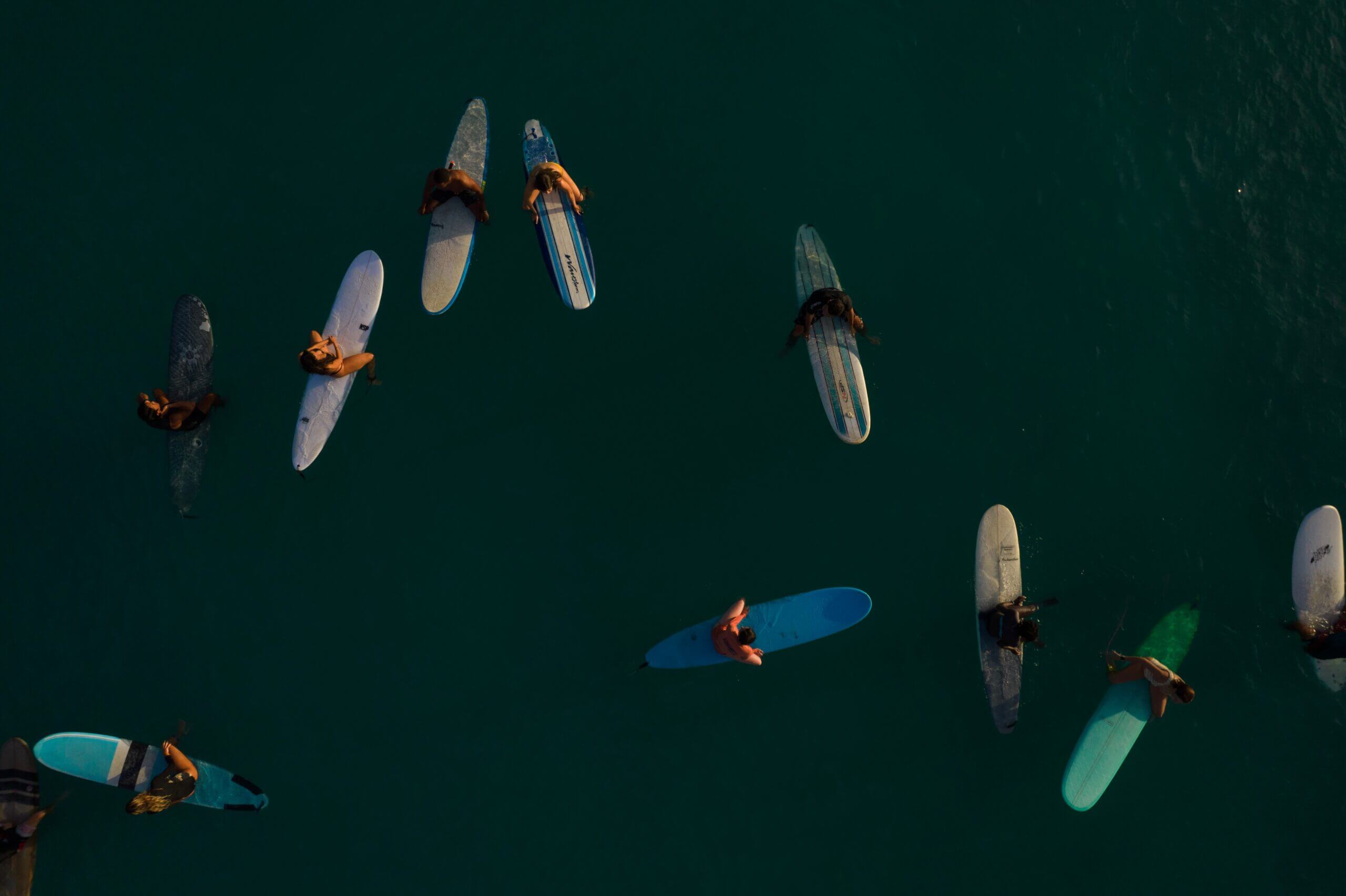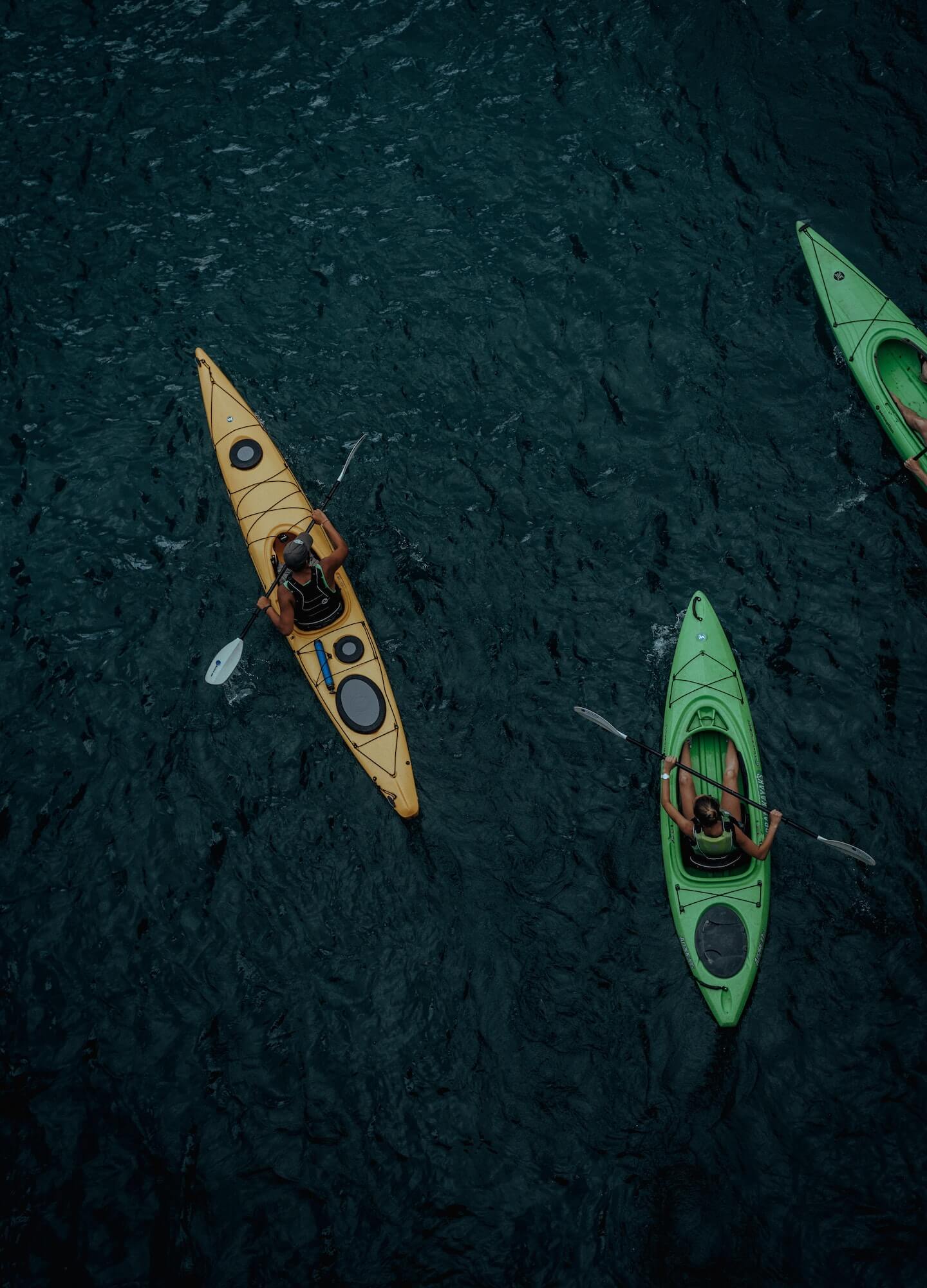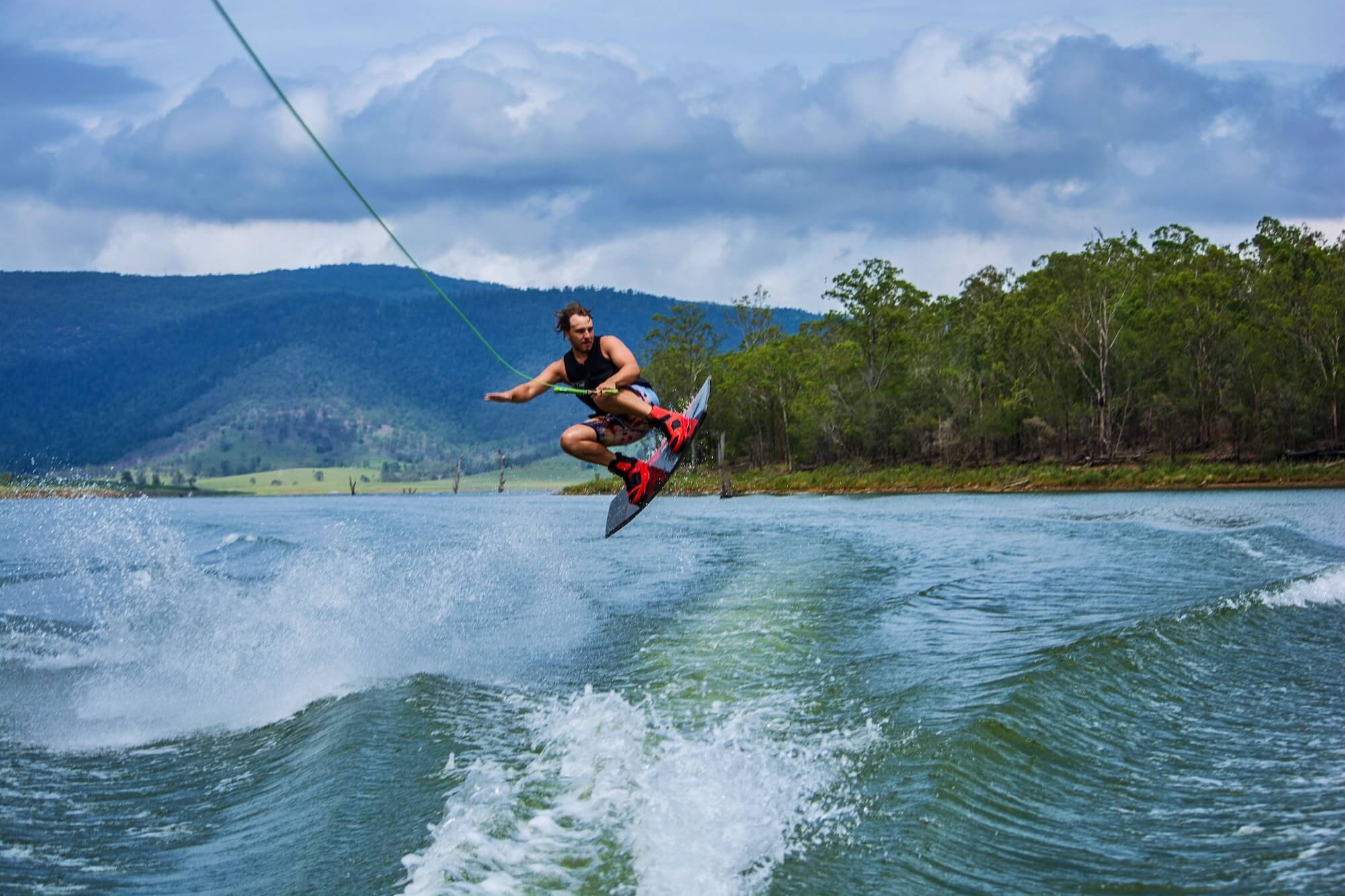We are 100% sure you have seen both when being on the seaside. Be it relaxing or joining yourself, it’s almost a safe bet to say you either wanted to or actually tried both of them.
Even though both sports are practiced on a board, there are some key differences that make them unique (as well as similarities). By practicing one or the other you won’t only need a different focus and mentality, but you will also activate your body in completely different ways. Plus, the way you approach how to move and how to ride waves changes.
So, if you are deciding between taking surf lessons or learning SUP, this is your blog post.
Similarities between surfing and Stand-Up Paddling
Let’s start with what makes us the same and what both of these great sports share.
Use of a board
As mentioned earlier, the board is key for both of these sports. Both sports rely on you balancing on top of the board in order to catch waves and ride them. Later in the post we will go deeper into the differences between both boards, but for now let’s keep in mind that the principle is the same. Without a good board no one can learn to surf or paddle.
Capacity to ride waves
Contrary to what you might be thinking, SUP is not a sport where you just paddle in calm waters. In fact, you can ride waves in the same manner as a surfer would do. The approach to the wave and the very beginning is different, but the capacity to catch a wave remains the same for both. The principle is to stand upright on the board and ride a wave until you tilt off and leave it.
In fact, once someone doing SUP and a surfer ride a wave at the same time, it might be difficult to tell them apart.
Differences when surfing and doing SUP
And now let’s get into what you came here for. What are the differences between both and how they will help you choose which one you want to learn.
Board size
We already mentioned that both sports use a board and can catch waves. However these boards are actually very different. SUP boards are longer, wider and thicker than surf boards. The reason behind it is that paddle boards are designed for support and for having a person standing on top of them with a paddle.
Typically a SUP board will be approximately 1m longer, 50% wider, twice as thick and weight between 2 and 3 times more than a surf board.
Paddle boarders are standing upright most of the time, which creates a need for a much more stable board. Surfing boards, on the other hand, are designed to catch waves, not to move in calm waters, that’s why they don’t need the structural support of a SUP board.
Ease of mobility
We already mentioned how both boards can be used to catch waves. However, surfboards were designed specifically for that and to provide its user with extra mobility and the capacity to perform sharp and precise maneuvers.
The bigger SUP boards also can maneuver, but the size diminishes this mobility. Stand up paddle boarding is not as easy once on a wave. And, even though, there is a paddle, it’s impossible to perform quick directional changes or swift movements.
Perfect water conditions
Another big difference is the need for specific conditions to practice the sport. Spoiler, stand up paddle has none. All you will need is a stand up paddleboard, yourself and a body of water. It doesn’t matter if it’s calm and flat or aggressive and full of huge waves.
Alternatively, surfing requires the waves as it’s a sport that was not thought to be practiced in calm environments like lakes or just the calm sea. It absolutely requires the presence of waves and these waves need to have a minimum of strength to be able to carry a surfer along.
Versatility of use
When talking about possibilities and the general versatility of both sports, SUP wins. It won’t have the mobility and the maneuvering possibilities of surfers, but it allows you to participate in tons of other activities that you wouldn’t be able to do on a surfboard.
We are talking about yoga, fishing, casual “walks” on flat waters and whatever might occur to you.
However, when riding waves, nothing can beat surfing.
Be it one or the other, if you are planning to get into the adventure of riding waves and practicing a watersport, the choice is yours and any of those will be a great one. Ask yourself if you just want to have options and a more stability-focused one or if you want to focus on riding waves and you will have your answers.
At Kaboti we offer beginner friendly lessons as well as some focused on more advanced learners. It doesn’t matter if you are a complete beginner or already had a few surf sessions, take a look at our list of private surf lessons and group surfing lessons to make the choice. And, if you have any concerns or questions, just reach us out! We are one call or message away from helping you.

